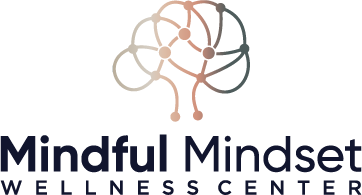Our Services
-
Individual therapy gives you a safe space to explore your thoughts, feelings, and concerns. Unlike couples, family, or group therapy, individual therapy focuses solely on you. This allows for a deeper understanding of the issues and more time for developing coping strategies to help you handle difficult situations. We help with a variety of issues including:
Academic and learning challenges
ADHD
Aging (adjustments to the effects of)
Alcohol Abuse
Anger and irritability
Anxiety, panic attacks, phobias or fears
Autism Spectrum
Behavior concerns
Bipolar Disorder
Borderline Personality Disorder
Caregiver stress
Career and work related stress
Child anxiety and fears
Child development problems
Chronic Illness
Depression
Difficulty focusing, attending or concentrating
Divorce and Separation
Domestic Violence
Grief, loss or sadness
Identity issues
Impulsivity
LGBTQIA
Life transitions/adjustments
Memory issues
Men’s issues
Mood changes
Panic Disorder
Parenting Support
Personality Disorders
Racial Identity
Relationship issues/skills
School related issues or problems
Self-Esteem issues
Social anxiety
Spiritual distress
Stress management
Substance abuse
Suicidal ideation
Trauma/Post Traumatic Stress
Traumatic Brain Injury
Women’s issues
Work-related stress
-
Couples therapy is also known as marriage counseling, couples counseling, or marital therapy. It provides couples with the skills they need to improve their communication, resolve differences, and enhance closeness and intimacy. It also identifies behaviors and attitudes partners frequently do not recognize as problematic and offers alternative ways of relating, which serve to further deepen their sense of connection. When two people are invested in it, there can be many benefits of couples therapy.
-
Family therapy allows the entire family to communicate with each other effectively, resolve problems, and support each other. In family therapy, a group can consist of many different combinations of loved ones, such as parents/guardians and their children, siblings, grandparents, aunts and uncles, friends, kinship caregivers, etc.
Family therapy can help with situations such as:
Abuse or neglect
Addiction
Adjusting to new life change (like moving) or a medical condition.
Changes and challenges that come with aging
Death and grief
Lack of boundaries
Perfectionism
Poor communication
Relationship conflicts, such as parent-child conflict or sibling conflict
Therapists also use family therapy to help treat certain mental health or behavioral conditions for one person within the family unit. For example, family therapy involving all or multiple members of the family can help treat anorexia for one person in the family.
Family therapy can provide support, education, and guidance to you and your loved ones to help you function better and increase your well-being.
-
Group therapy is a form of psychotherapy where multiple clients are treatment by one or more clinician. Group therapy can help people in a number of ways, including:
Relieving distress
By discussing and expressing feelings, group members can relieve distress and promote more constructive ways of coping.
Building a support network
Group members can provide each other with support and feedback, and help each other come up with ideas for improving difficult situations.
Gaining knowledge and skills
Group therapy can help people learn coping skills and gain knowledge to manage their issues.
Improving social skills
Some groups focus on improving social skills and helping people deal with issues like communication issues, shyness, loneliness, and low self-esteem.
Identifying patterns
By sharing their lives, group members can identify patterns and change patterns that are no longer serving them.
Telehealth/Teletherapy
With Telehealth, you no longer have to travel to a physical office to prioritize your mental health. Telehealth gives you the opportunity to engage in therapy from the comfort of your home. If you want to have a session with your therapist in your pajamas — while enjoying a cup of coffee— you can!
On our end, we use Google Meet or Doxy.me, HIPAA compliant, secure platforms. On your end, you can use your computer, tablet, smart phone or any device with a screen that allows you to access the internet.
Your therapy will be confidential and carefully tailored to your needs. Our training enables us to draw upon a range of evidenced-based therapeutic approaches to offer an individualized treatment plan which will address your specific needs. We offer therapy for individuals, couples, and families online. Click here to learn more about what we treat…
“Therapy is about understanding the self that you are. But part of getting to know yourself is to unknow yourself - to let go of the limiting stories you've told yourself about who you are so that you aren't trapped by them, so you can live your life and not the story you've been telling yourself about your life.”
~ Lori Gottleib
Questions before getting started? Ask us!
Reach out to us today!
You are welcome to call 708-480-2048, email the intake department at intake@mindfulmwc.com, or complete the form below and we will be in touch as soon as possible.
Call or Text: 708-480-2048 // Email: intake@mindfulmindsetwellnesscenter.com
Locations:
7667 W. 95th St. Suite 209 Hickory Hills, IL 60457
1717 N Naper Blvd Suite 200, Naperville, IL 60563
© 2024 by Mindful Mindset Wellness Center. All Rights Reserved.
Made with Square Space



